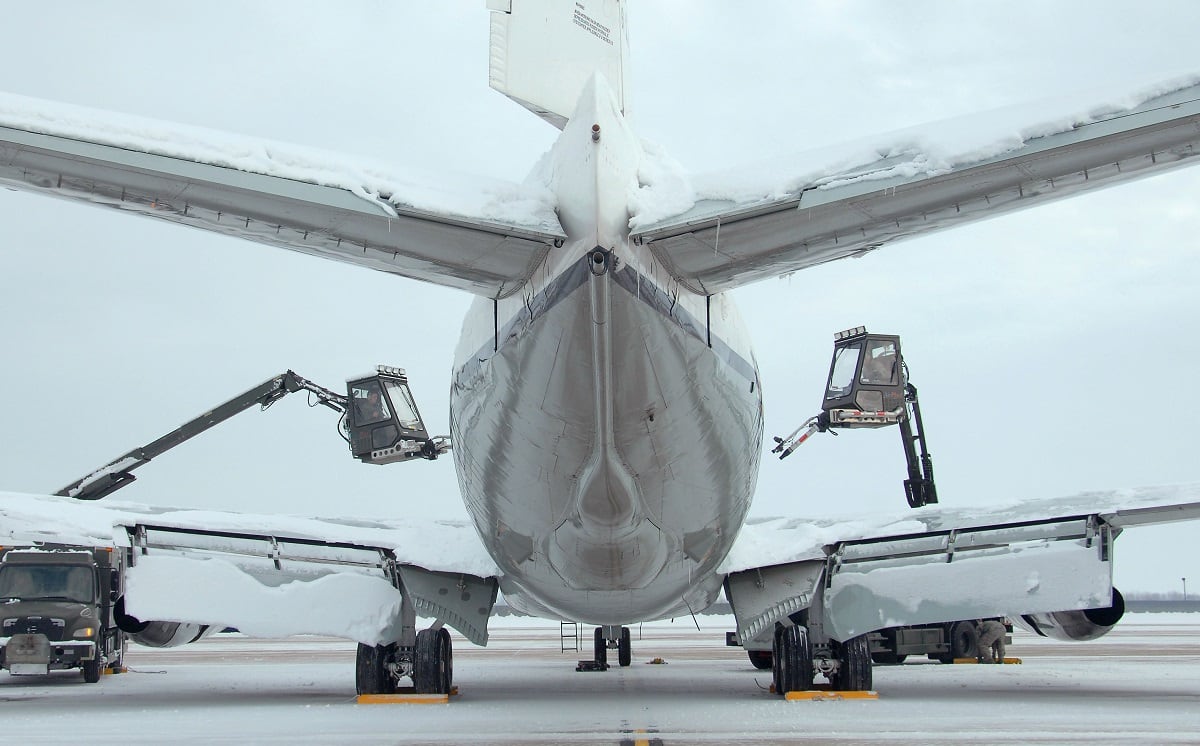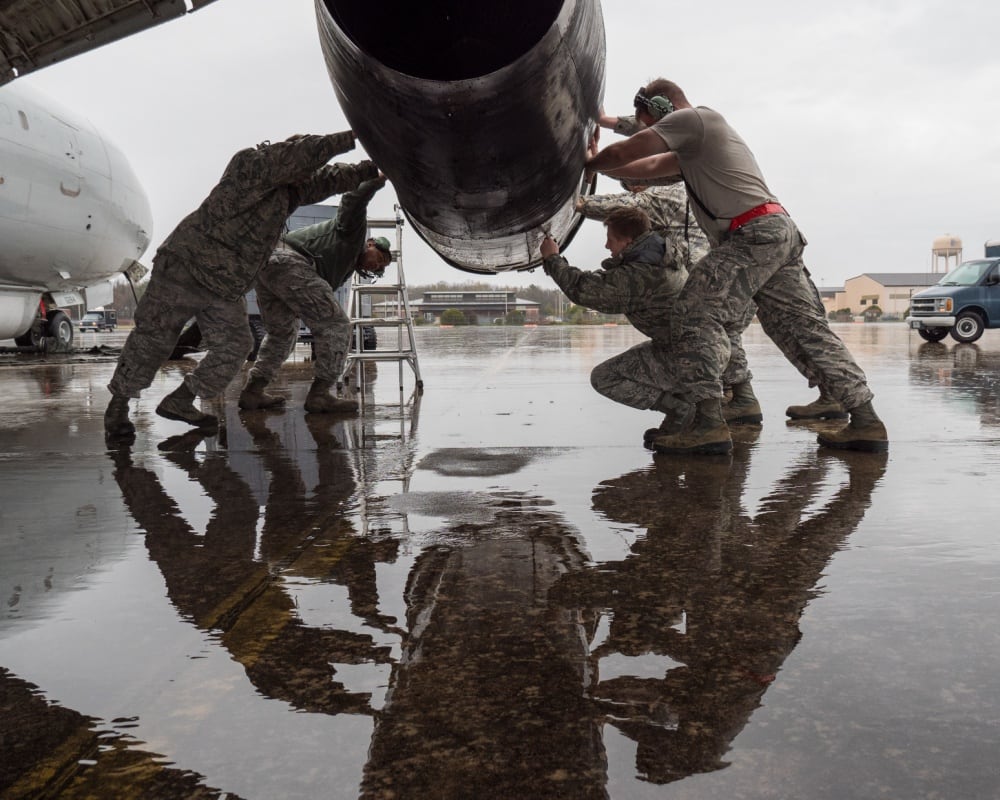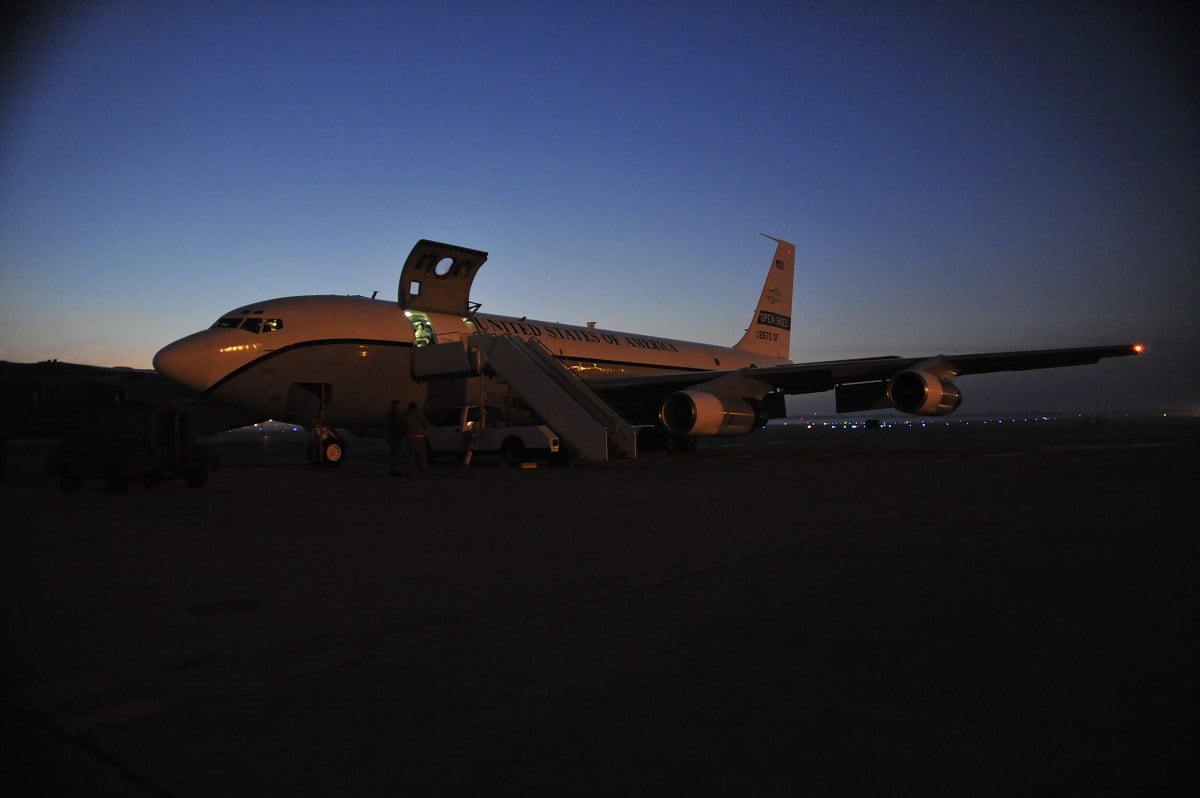WASHINGTON ― Top Democratic lawmakers strongly urged the Trump administration on Tuesday against expected action to withdraw America from a landmark treaty which allows the Russian military to be monitored from the air.
In a letter to Defense Secretary Mark Esper and Secretary of State Mike Pompeo, Senate Foreign Relations Committee ranking member Bob Menendez ― with House Armed Services Committee Chairman Adam Smith, D-Wash.; House Foreign Affairs Committee Chairman Eliot Engel, D-N.Y., and Senate Armed Services Committee ranking member Jack Reed, D-R.I. ― said scrapping the 1992 Open Skies Treaty “would be another gift” to Russian President Vladimir Putin.
“Withdrawing from the Open Skies Treaty would be perceived as casting further doubt on the status of the United States commitment to Ukraine’s security and would advance the Russian narrative that the United States is an unreliable partner in the region,” the letter reads.
Open Skies permits unarmed flights over the sovereign territory of 34 signatory nations to monitor military activity and conduct arms control measures. The U.S. uses two aging Boeing OC-135B aircraft, which are flown by the 45th Reconnaissance Squadron out of Offutt Air Force Base, Neb.
RELATED

Though the U.S. has spy satellites, the overflights have allowed the U.S. and other signatories to share unclassified imagery with Ukraine and other countries near Russia who may not have satellite capability. Last year, then-Defense Secretary Jim Mattis said in a letter to Nebraska Republican Sen. Deb Fischer that the overflights were particularly useful after the Russian annexation of Crimea in 2014 and that it was in America’s “best interest” to stay in it.
The lawmakers alleged the administration was moving forward without consulting allies or Congress and that, “agencies have been directed not even to discuss this matter with Congress.” The administration, they said, had made no case for withdrawing on national security grounds.
“That the administration may now be choosing to withdraw from the Treaty would signal a troubling reversal and a lack of coherent strategic thinking,” the letter reads.
Increased discussions inside the Pentagon and State Department of late have fueled fears the National Security Council is planning a push to withdraw the U.S. from the Open Skies Treaty. “There are a lot of rumors floating around, but there are also fears in the Department of State and Department of Defense that this is on the path to happening,” said one House Armed Services Committee aide.
On Monday, Engel sent his own letter to White House National Security Advisor Robert O’Brien to urge against the Trump administration’s “reported plans” on Open Skies. A withdrawal would undercut NATO allies and Ukraine, which have lauded the treaty-sanctioned ability to monitor Russia’s military as check on further Russian aggression in Ukraine, Engel said.
“Withdrawal risks dividing the transatlantic alliance and would further undermine America’s reliability as a stable and predictable partner when it comes to European security,” Engel said. “If the Administration is indeed considering a change of status on the Treaty, it must be part of a transparent process that includes a thorough interagency review and consultation with Congress, and that provides other signatories a clear understanding of your intentions.”
The current controversy comes amid an impeachment investigation over Trump pushing Ukraine’s president to investigate former Vice President Joe Biden and whether Trump withheld military aid to Ukraine as leverage, and avoided an interagency process.
As of Tuesday morning, the White House had not directed the Defense Department to curb Open Skies activities, said Pentagon spokeswoman Lt. Col. Carla Gleason.
“The Open Skies Treaty enhances confidence and security by providing a mechanism for mutual understanding,” Gleason said in a statement, noting that Russia had previously been found in violation of the terms of the treaty.
“The United States has imposed Treaty-compliant measures on Russian Open Skies flights over the United States in response to their violations,” Gleason said. “We will continue to work with our partners to press Russia to correct these violations and return to compliance with the Treaty.”
Late last year, the U.S. flew an OC-135 over Ukrainian territory to reaffirm U.S. commitment to Ukraine and other allies ― a signal to Russia after it attacked Ukrainian naval vessels in the Black Sea near the Kerch Strait. It was the first flight of the year after the U.S. and Russia appeared to resolve an impasse over what equipment may or may not be certified on Russia’s overflight aircraft, the Tu-214.
In September, 2018, Deputy Secretary of State John Sullivan certified, as required by the 2019 defense authorization act, that the U.S. had imposed consequences for Russia’s treaty violations as well as legal countermeasures.
Congress has passed action to support OC-135B recapitalization plans in recent years, but Republicans have been split over the treaty. While the House Armed Services Committee’s ranking member, Mac Thornberry, R-Texas, and the Senate Subcommittee on Tactical Air and Land Forces chairman, Sen. Tom Cotton, R-Ark., have vented frustration over Russian treaty violations, Fischer and other key lawmakers from Nebraska have fought off efforts to strip funding for its modernization.
Rep. Don Bacon, R-Neb., a retired Air Force brigadier general who formerly commanded the 55th Wing, defended planned upgrades to treaty aircraft and said the treaty itself “promotes understanding, trust and stability” among its members, “grants the U.S. valuable access to Russian airspace and military airfields on short notice.”
“I understand that the administration is considering if we should remain in the treaty,” Bacon said in a statement Tuesday. “I believe the US was justified in terminating our participation in the [Intermediate Nuclear Forces Treaty], but I’ve yet to see a compelling reason to withdraw from Open Skies.”
Cotton, on the other hand, has called on the U.S. withdraw for years, arguing it is out of date and favors Russia, in part because it restricts surveillance flights over Kaliningrad, home to a Russian military hub, and the breakaway Georgian territories of Abkhazia and South Ossetia.
"Vladimir Putin has violated the Open Skies Treaty for years while continuing to benefit from surveillance flights over the United States,” Cotton said in a tweet Tuesday. “The president should withdraw from the Open Skies treaty and redeploy the hundreds of millions of dollars the Pentagon wastes on the flights and equipment to increase U.S. combat power.
RELATED

The funding for the OC-135 recapitalization would be better shifted to other higher defense priorities than a treaty that lets Putin play the U.S. for “chumps,” said one congressional aide, adding: “It’s the height of insanity to burn a quarter of a million to make the Europeans feel good."
The draft 2020 defense authorization bill passed by the Democrat-led House would bar DoD funding to exit the treaty. That is, unless the secretaries of state and defense jointly certify Russia is in material breach and is not trying to return to compliance, and that all the other parties to the treaty concur, or that it’s in the best interest of the U.S. to leave and all other parties to the treaty were consulted.
An Open Skies pullout would mark a reversal for Trump, who signed a 2019 budget that included $125 million towards the first of two new aircraft to replace the aging Open Skies planes. The White House budget office last year fought off an effort in Congress to defund the OC-135 recapitalization effort, arguing the Air Force needed the money to replace the existing fleet of 1960s-era aircraft with “modern, capable, and cost-effective aircraft.”
The Air Force has been preparing to replace both the aircraft and its current wet film camera system, which would move to an entirely digital sensor, processing and control suite. It began surveying industry in April 2018 and initially planned to award a contract in 2020 — although it was unclear Tuesday whether it was still on track to do so.
According to a PowerPoint presentation shown during a May 2018 industry day, the service was seeking out two new commercial airliners that could be outfitted with the existing Digital Visual Imaging System. In April 2019, the Air Force noted in an update to its solicitation that it planned to issue a request for proposals for an OC-135 replacement in June.
However, in June it amended the posting with an additional request for information about “other than new” aircraft that could fill the OC-135’s mission — indicating, perhaps, that the service was not ready to commit to buying new planes and was looking for a more economical alternative. There have been no updates to the solicitation since June 25 and no additional information on when the service might start a formal competition.
RELATED

The possible move to abandon Open Skies follows the Trump administration’s withdrawal from the Intermediate-Range Nuclear Forces Treaty, which banned land-based missiles with a range between 500 and 5,500 kilometers, and amid questions over whether the New Strategic Arms Reduction Treaty, which applies to weapons with a global reach, will continue past its 2021 expiration date.
Kingston Reif, director for disarmament and threat reduction policy at the Arms Control Association, noted that U.S. flights over Ukraine and western Russia have yielded valuable data, easily shared between allies. The flights strengthen ties between the U.S. and its allies and reassure non-NATO members on Russia’s periphery, he said.
“The Trump administration has already laid waste to several international agreements designed to enhance the security of the United States and its allies and it appears the Open Skies Treaty could be next on the kill list,” Reif said. “Withdrawing from the treaty would be another step in the collapse of U.S. leadership and further alienate U.S. allies and partners.”
The reports of a possible withdrawal prompted a backlash on social media from arms control experts like Reif but also former government officials who seemed to have been blindsided.
"We are now pulling out of the Open Skies Treaty? Really? Please tell me this can’t be true,” former U.S. Ambassador to Russia Michael McFaul said in a tweet.
“Russia hates Open Skies because it requires them to let Ukraine fly over their country,” Jon Wolfsthal, a former National Security Council official for arms control and nonproliferation said in a tweet. “This is another Trump gift to Putin.”
Joe Gould was the senior Pentagon reporter for Defense News, covering the intersection of national security policy, politics and the defense industry. He had previously served as Congress reporter.
Valerie Insinna is Defense News' air warfare reporter. She previously worked the Navy/congressional beats for Defense Daily, which followed almost three years as a staff writer for National Defense Magazine. Prior to that, she worked as an editorial assistant for the Tokyo Shimbun’s Washington bureau.








